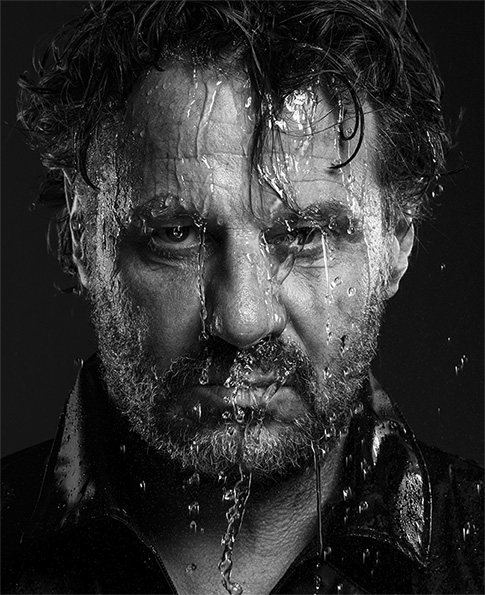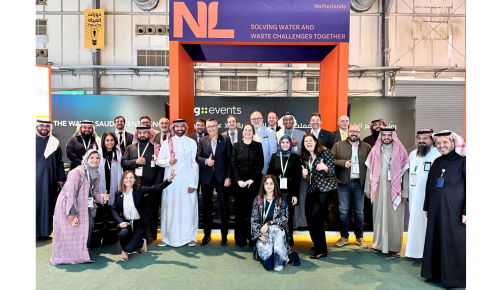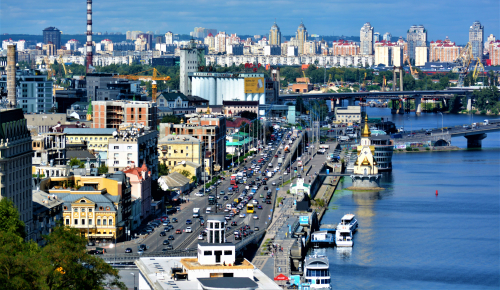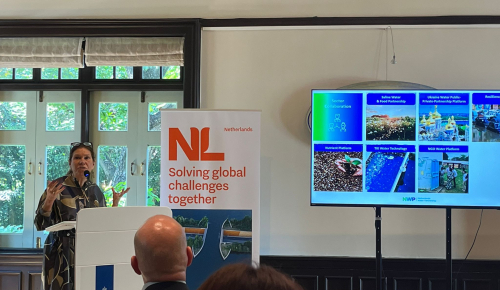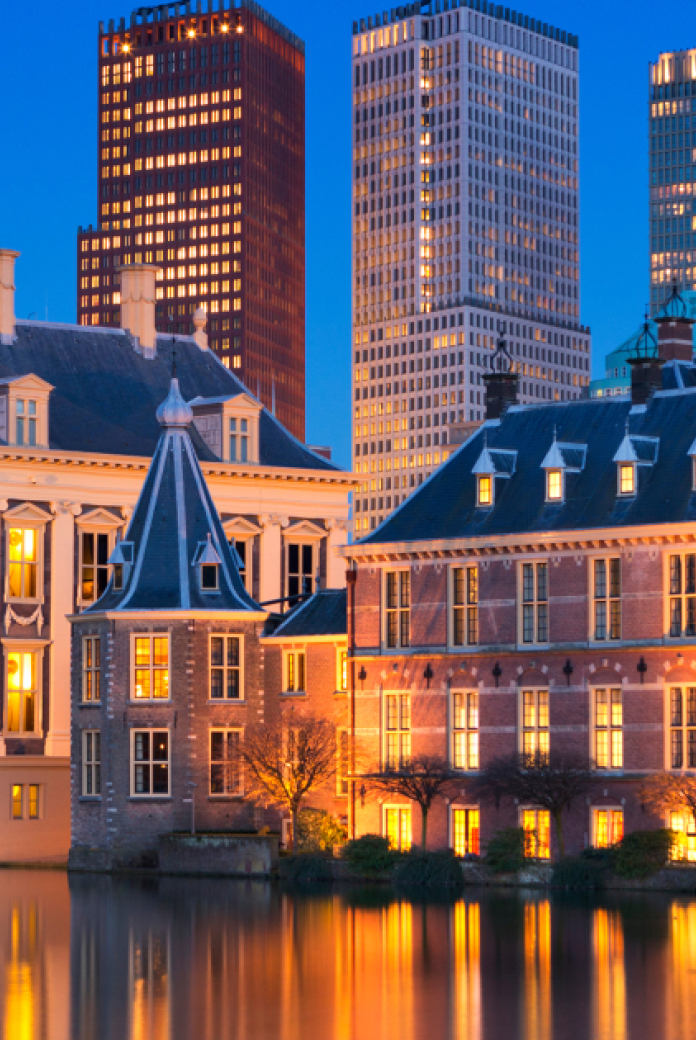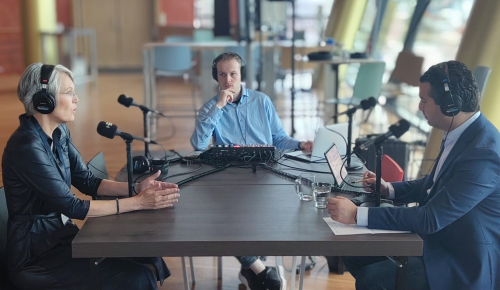News
8 October 2020Join the Pipe, a global community of tap water drinkers
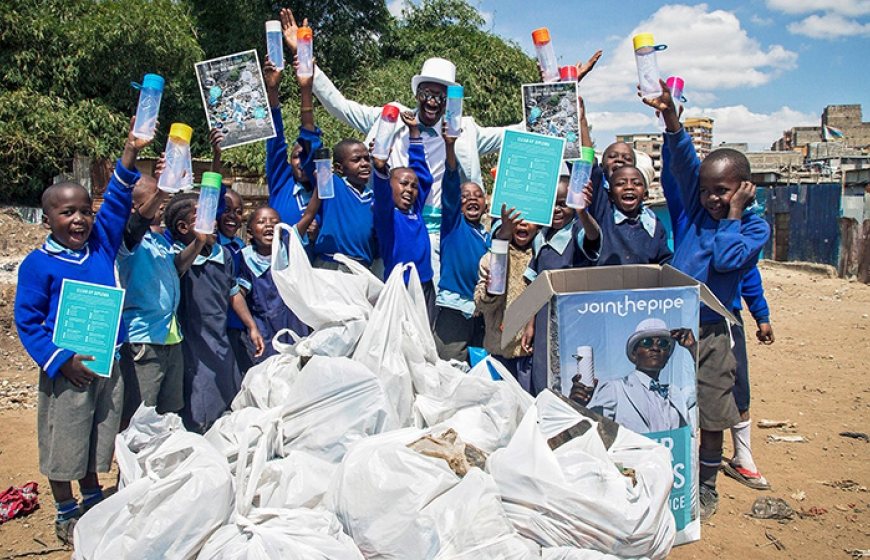
Filling a glass with clean drinking water from your tap at home is something many people take for granted. Unfortunately, this is not the case in areas where harsh climate conditions or lack of financial resources make it difficult to install a domestic supply of safe drinking water. A 2019 WHO/UNICEF study showed that 2.2 billion people lack access to safely managed drinking water services. In this context, bottled water continues to be the only option. Although most bottles are recyclable, collection efforts are failing to keep up with demand, resulting in increasing quantities of plastic waste.
Join the Pipe is a new member of the Netherlands Water Partnership (NWP) who has developed a concept that not only helps to reduce plastic pollution, but also reduces the need for costly collection and recycling efforts. This represents a practical alternative for cities that cannot afford a public water distribution system or where the quality of the tap water is not consistent. The company is based in Amsterdam and manufactures reusable water bottles and tap water refill stations. It has installed taps in over 3,500 locations all over the world such as parks, schools, gyms, offices, stations, airports, and hotels. The proceeds from bottle sales and refill stations in Europe help fund water projects in developing countries.
Founder Geraldo Vallen talks about the need to shift focus away from investing in a connected water supply to a more practical solution where people can access affordable drinking water by refilling their own reusable water bottles from a local source, such as their neighbourhood supermarket. Join the Pipe is well on its way to making this a reality and is eager to collaborate with fellow NWP members who operate in the drinking water and filter industry.
‘Refill, reuse, reduce - if you want to sell bottled water, you need to have a refill station.’
‘The real solution is a reuse community. Instead of bringing your bottles back to the supermarket for recycling, you bring it back for refilling. For developing countries especially, it is a win-win situation. It is cheaper for customers to refill their water bottles, and for the retailer it requires less storage space and eliminates the need for a recycling system. It’s just a matter of changing the water filters every few months. You don’t need a lot of space, only a water source, and that water needs to be filtered. This is not expensive.
Similar to regulations that require access facilities for people with special needs, governments should require supermarkets to install safe tap water units.
‘I am not the guy to say we have to ban the bottle, but we do have to create a cheaper and more sustainable alternative.’
Even in cities where the water supply is often safe, we all have the responsibility to reduce plastic waste. But if you are thirsty and on the go, the only option you have right now, is to buy single-use bottled water because there are no refill points. Consumers are currently the ones being asked to reduce plastic use. We would like governments to be more involved by calling on cities and water companies to sell their tap water in the supermarkets – the very same location where bottled water is sold. Instead of a refund for empty bottles, everyone selling bottled water should also install a refill tap so people have the chance to refill at a fair price.
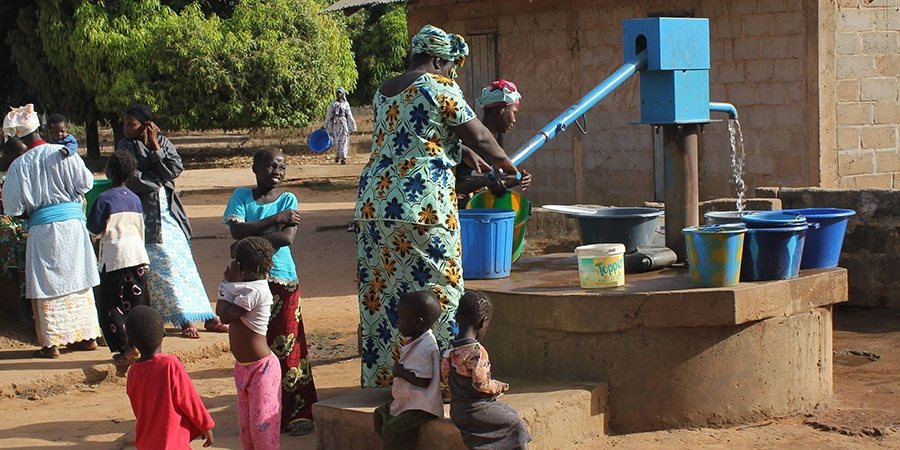
‘City Water - cheaper and more sustainable’
The City Water idea came to me in 2005 when I was asked to create a similar campaign in Barcelona where the water tasted different than in Madrid. The quality and taste of tap water is not the same in every city, so we created a new brand of tap water that is drinkable and filtered at the point of sale, such as a supermarket or a hotel. The City Water bottle features the skyline of the city in which it is sold. It is attractive for tourists and a nice souvenir. It is made from sugar cane residue and is completely recyclable. Although City Water is now being tested in the Albert Heijn and Spar supermarkets in the Netherlands, the biggest impact will be in cities where the water quality is poor or unsafe, such as large African cities like Accra or Nairobi. We are also talking with the Spar supermarket chain in African and Asian countries. We are showing them that they can make money and reduce plastic waste by selling tap water.
‘We need to think out of the box’
Join the Pipe has created different designs for its filling stations to suit a variety of locations and living conditions. We need to join forces and find innovative ways to make safe drinking water cheaper and more sustainable. We need to be just as aggressive as with plastic bags. Just as people are expected to bring their own bags to the supermarket, so they should be required to bring their own water bottles.
The world will never be plastic-free but we can work at the source of the problem. This is most often in cities where the quality of the water supply is unreliable and plastic waste disposal is inefficient. We are focusing too much on developed countries and recycling.
‘Blue Pump - poor quality equipment makes low-income countries poorer’
As water pumps are often low quality hand pumps that break down regularly or require expensive maintenance, Join the Pipe is working with Blue Pump to provide high quality water pumps to rural areas in Africa. We use the proceeds from our bottles and refill stations in Europe to set up water projects in developing countries, organise City Clean-Ups and install water pumps in villages. We are now working on delivering high quality hand pumps that are maintenance free for five years. We want to create a Rolls Royce for the price of a Volkswagen when it comes to hand pumps! We believe that it is not enough to donate money, we should also share technology and all the innovations that we have created. I believe that less developed nations require better quality solutions.’
Want to know more?
Interested in joining them? Contact details and more information on Join the Pipe and its products and projects can be found on its website.
